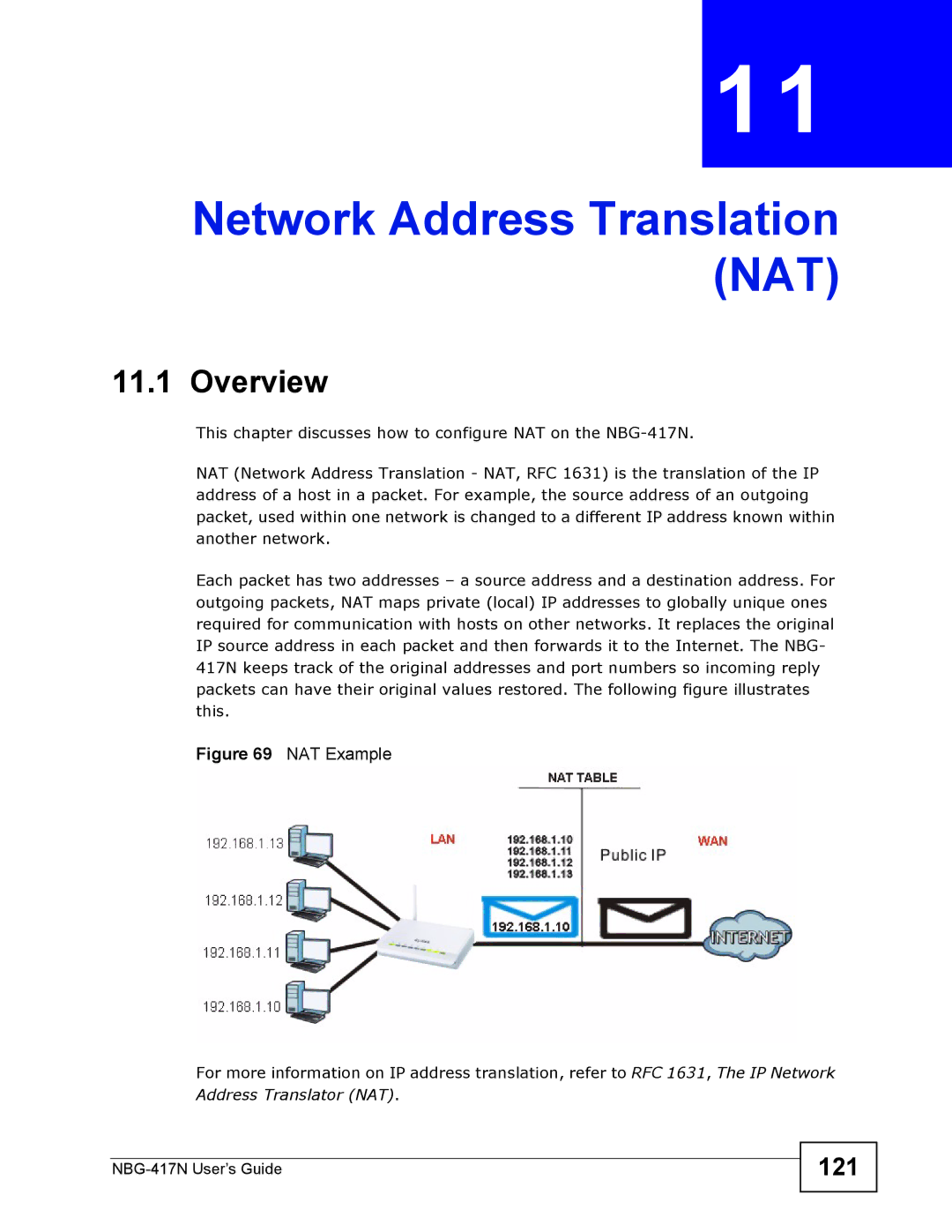
11
Network Address Translation (NAT)
11.1 Overview
This chapter discusses how to configure NAT on the
NAT (Network Address Translation - NAT, RFC 1631) is the translation of the IP address of a host in a packet. For example, the source address of an outgoing packet, used within one network is changed to a different IP address known within another network.
Each packet has two addresses – a source address and a destination address. For outgoing packets, NAT maps private (local) IP addresses to globally unique ones required for communication with hosts on other networks. It replaces the original IP source address in each packet and then forwards it to the Internet. The NBG- 417N keeps track of the original addresses and port numbers so incoming reply packets can have their original values restored. The following figure illustrates this.
Figure 69 NAT Example
For more information on IP address translation, refer to RFC 1631, The IP Network Address Translator (NAT).
